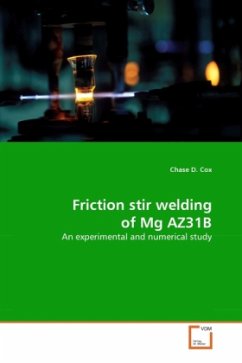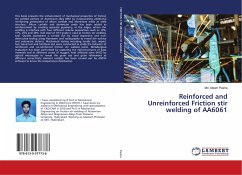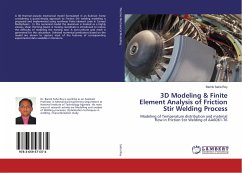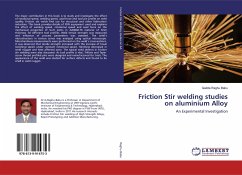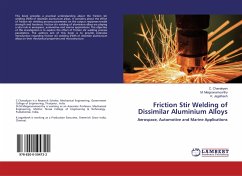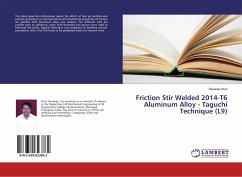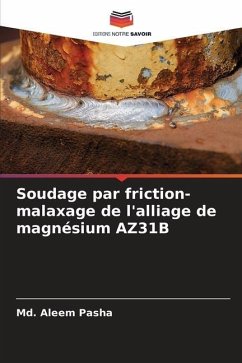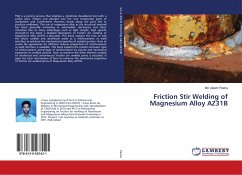
Friction Stir Welding of Magnesium Alloy AZ31B
Versandkostenfrei!
Versandfertig in 6-10 Tagen
33,99 €
inkl. MwSt.

PAYBACK Punkte
17 °P sammeln!
FSW is a joining process that employs a cylindrical shouldered tool with a probe (pin), rotates and plunges into the two consecutive parts of workpieces and furthermore traverses slowly along the joint line to produce weldment. The use of magnesium alloy as the structural material has been generally increasing in automobile, electronics and other industries due to many advantages such as light weight, high specific strength.In this book a detailed description of friction stir welding of Magnesium Alloy AZ31B is discussed. This book explains the how to add the silicon carbide and aluminium oxid...
FSW is a joining process that employs a cylindrical shouldered tool with a probe (pin), rotates and plunges into the two consecutive parts of workpieces and furthermore traverses slowly along the joint line to produce weldment. The use of magnesium alloy as the structural material has been generally increasing in automobile, electronics and other industries due to many advantages such as light weight, high specific strength.In this book a detailed description of friction stir welding of Magnesium Alloy AZ31B is discussed. This book explains the how to add the silicon carbide and aluminium oxide as a reinforcement at weld interface to enhance the mechanical properties of welded portion. How to create the geometries for different volume proportions of reinforcement at weld interface is available. This book explains the relation between type of reinforcement, percentage of reinforcement by volume and mechanical properties of welded portion. How to perform the finite element analysisof reinforced and unreinforced friction stir welded joints is included. It gives the clear information of how to enhance the mechanical properties of friction stir welded joints of Magnesium Alloy AZ31B.



